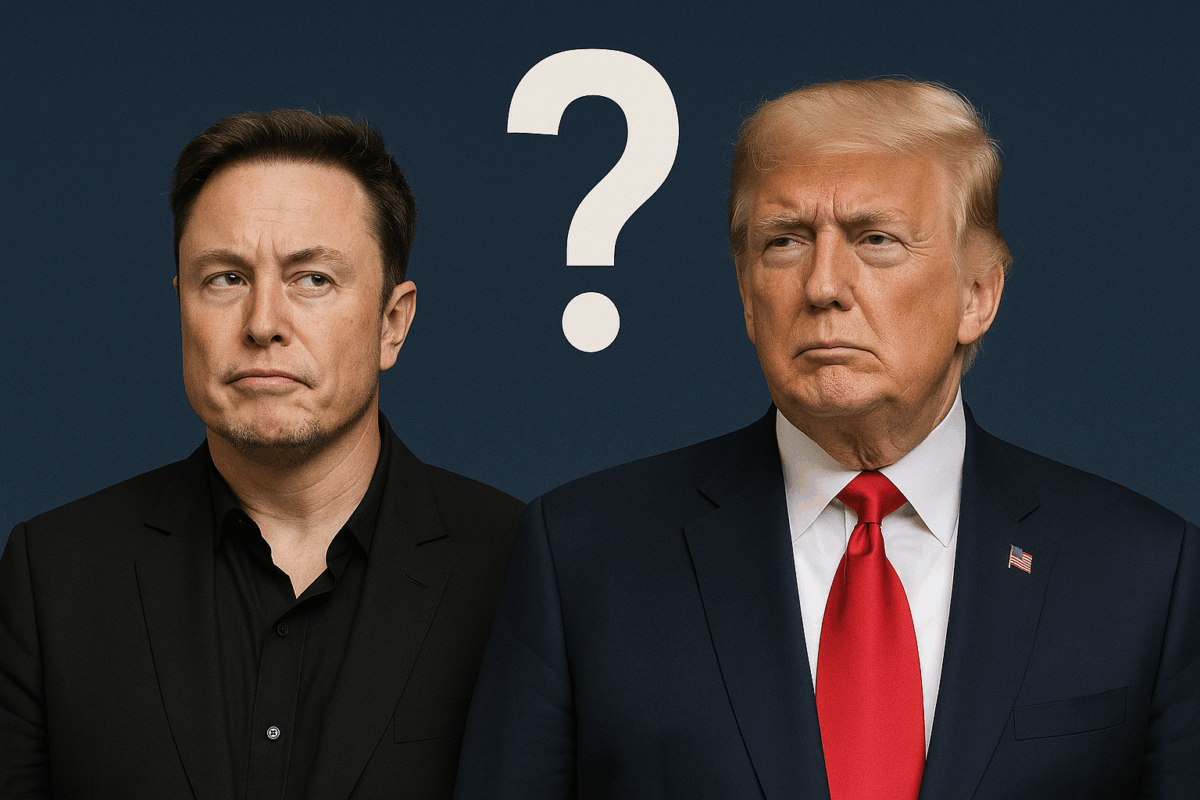The relationship between Elon Musk and Donald Trump has always fascinated the public. For years, Musk—the billionaire behind Tesla, SpaceX, and X (formerly Twitter)—and Trump, the outspoken former and current U.S. president, seemed to stand on opposite sides of America’s political spectrum. Yet, their recent reunion at the memorial service for Charlie Kirk shocked observers and fueled speculation: are Musk and Trump truly reconciling, or is this simply a calculated move?
A Complicated History of Rivalry
Musk and Trump were never traditional allies. During Trump’s first presidency, Musk served briefly on the White House business advisory council but left in protest after Trump withdrew the United States from the Paris Climate Agreement. Musk repeatedly distanced himself from Trump’s controversial policies, and Trump, in turn, criticized Musk’s ambitious plans, especially regarding electric vehicles and subsidies.
Their rivalry seemed cemented when Musk supported candidates outside of Trump’s orbit in the 2024 election cycle. Social media exchanges between the two further painted a picture of mutual disdain, with Musk calling for more innovation-focused leadership and Trump mocking Musk’s “fantasy projects.”
The Unexpected Reunion
On September 22, 2025, both men were seen together at a public event honoring conservative activist Charlie Kirk. Cameras captured Musk and Trump exchanging brief words, and Musk later posted a cryptic message on X with the phrase “For Charlie” and the word “Unity.”
This gesture was small, yet it carried massive weight. Political analysts quickly debated whether Musk’s use of the word “Unity” was directed at the broader American public—or if it was a subtle signal that he and Trump had decided to put aside their differences.
For Trump, the optics were equally significant. By standing beside one of the world’s richest men and most influential tech innovators, he sent a clear message to both Wall Street and Silicon Valley: he is open to collaboration, even with former critics.
Unity or Strategy?
The big question remains: is this newfound closeness genuine? Critics argue that both men have strategic reasons for softening their stances.
-
For Musk, closer ties with the Trump administration could mean smoother regulations for Tesla’s autonomous vehicles, potential government contracts for SpaceX, and a better environment for his AI company, xAI.
-
For Trump, aligning with Musk adds credibility to his economic message. Trump has often promised to bring tech innovation back to America, and standing alongside Musk—who employs tens of thousands in the U.S.—gives weight to that promise.
Yet skeptics warn that this may be little more than political theater. Both Trump and Musk are known for making headlines, and a public “reunion” guarantees massive media coverage, social media engagement, and endless speculation.
Public Reactions
Public opinion has been sharply divided. Supporters of Trump celebrated the reunion, framing it as proof that even influential critics like Musk are willing to get behind Trump’s vision. Meanwhile, Musk’s followers were split. Some praised him for taking a pragmatic approach, while others worried that aligning with Trump might damage his image as an independent thinker.
On social media, the moment went viral. Hashtags like #MuskTrump, #Unity, and #BillionairePolitics trended worldwide, with memes, debates, and even conspiracy theories flooding platforms within hours.
What Comes Next?
The truth about Musk and Trump’s “unusual” relationship may not be revealed immediately. What is clear, however, is that this partnership—or even the appearance of one—has major implications. It could reshape political narratives heading into 2026, impact the direction of U.S. tech policy, and influence global markets.
For now, the world watches closely. Are Musk and Trump truly moving from rivals to allies, or is this just another headline in America’s never-ending political drama?


